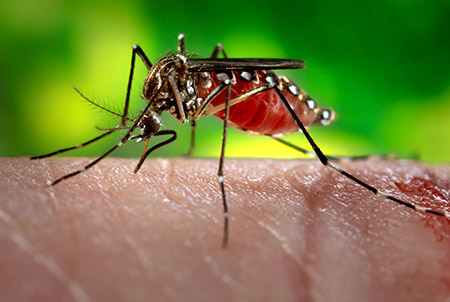Another week, another virus.
This time it’s a new one known as the Zika virus which has been in the international news mostly. Thankfully there have been no reported cases in the country however it is important that we all stay informed.
The Zika virus is a mosquito-transmitted infection related to dengue, yellow fever and West Nile virus. It was first discovered in the Zika forest in Uganda in 1947 and Outbreaks of the disease have been recorded in Africa, the Americas, Asia and the Pacific, however it did not begin spreading widely in the Western Hemisphere until last May, when an outbreak occurred in Brazil.
Zika is spread by mosquitoes of the Aedes genus, which can breed in a pool of water as small as a bottle cap and usually bite during the day. The aggressive yellow fever mosquito, Aedes aegypti, has spread most Zika cases,
Yet for most, the infection causes no symptoms and leads to no lasting harm. Only one of five people infected with the virus develop symptoms, which can include fever, rash, joint pain and red eyes. Those infected usually do not have to be hospitalized.

Scientific concern is focused on women who become infected while pregnant and those who develop a temporary form of paralysis after exposure to the Zika virus.
When the virus strikes women who are pregnant, it’s been found to produce the horrific effect of microcephaly in which the baby is born with a small head. In some cases the baby may have no other problems other than the head being visibly small it in some cases the infant’s brain may not have developed properly during pregnancy or may have stopped growing in the first years of life. These children may experience a range of problems, like developmental delays, intellectual deficits or hearing loss.
Also it is not known when in pregnancy the consequences are greatest. Pregnant women who have visited any area with Zika transmission should consult a doctor and also have regular ultrasound scans to ensure that the baby is developing normally in utero. Those who have had symptoms of infection like fever, rash, joint pain and bloodshot eyes during their trip or within two weeks of returning should have a blood test for the virus.
With the 2016 summer Olympic Games coming up in Rio de Janeiro, public health experts are worried that the virus may spread far beyond Latin America. Especially considering that that The virus can also be sexually transmitted. Condom use can protect you against infection. It is not certain how long after infection the virus may still be found in semen, but British health authorities have suggested using condoms for at least 28 days.
To detect Zika, a blood or tissue sample from the first week in the infection must be sent to an advanced laboratory so the virus can be detected. The virus usually remains in the blood of an infected person for about a week but it can be found longer in some people. Zika virus is diagnosed through PCR (polymerase chain reaction) and virus isolation from blood samples.
Treatment
There is no vaccine to prevent infection with the Zika virus and there is also no specific medicine to treat Zika infections.
Treatment is usually symptomatic. Infected persons should:
● Get plenty of rest.
● Drink fluids to prevent dehydration.
● Take medicine such as acetaminophen to relieve fever and pain.
● Do not take aspirin and other non-steroidal anti-inflammatory drugs.
● Prevent mosquito bites for the first week of illness.
During the first week of infection, Zika virus can be found in the blood and passed from an infected person to a mosquito through mosquito bites. A person bitten by a mosquito that has the virus then becomes viremic. They get bitten by another mosquito, which then passes the virus along. An infected mosquito can then spread the virus to other people.






